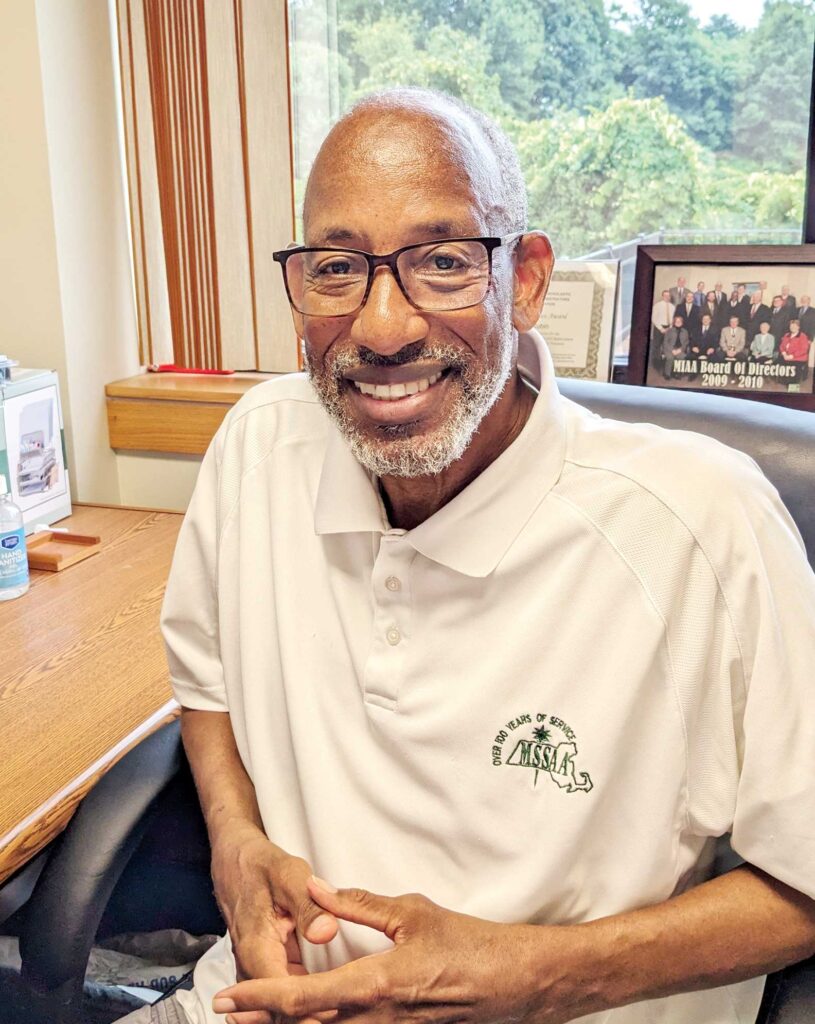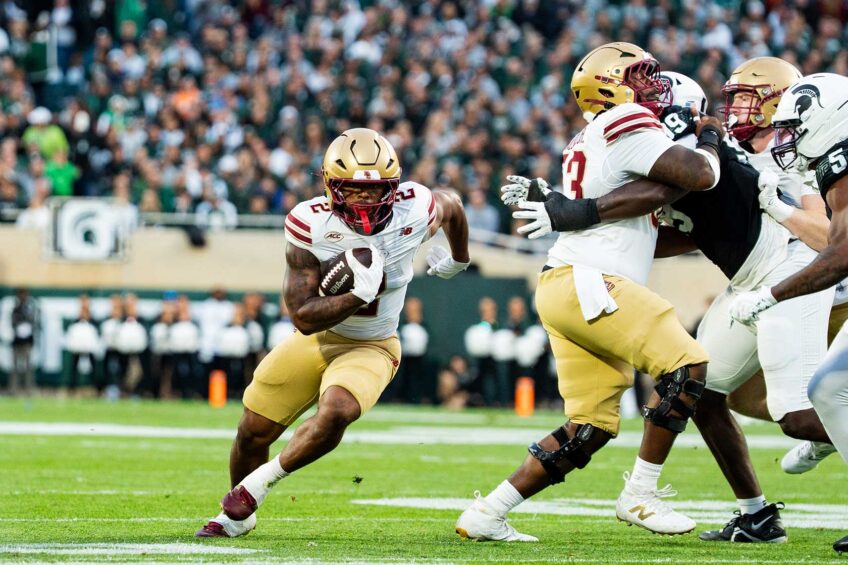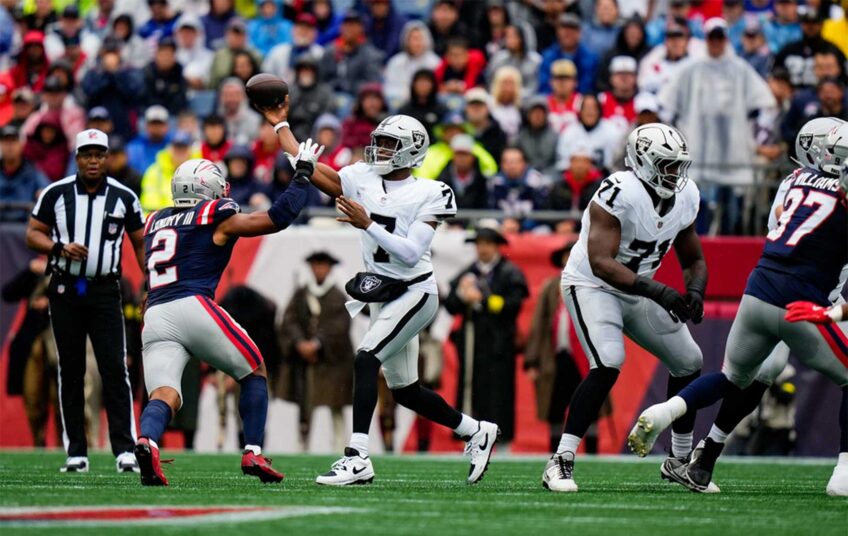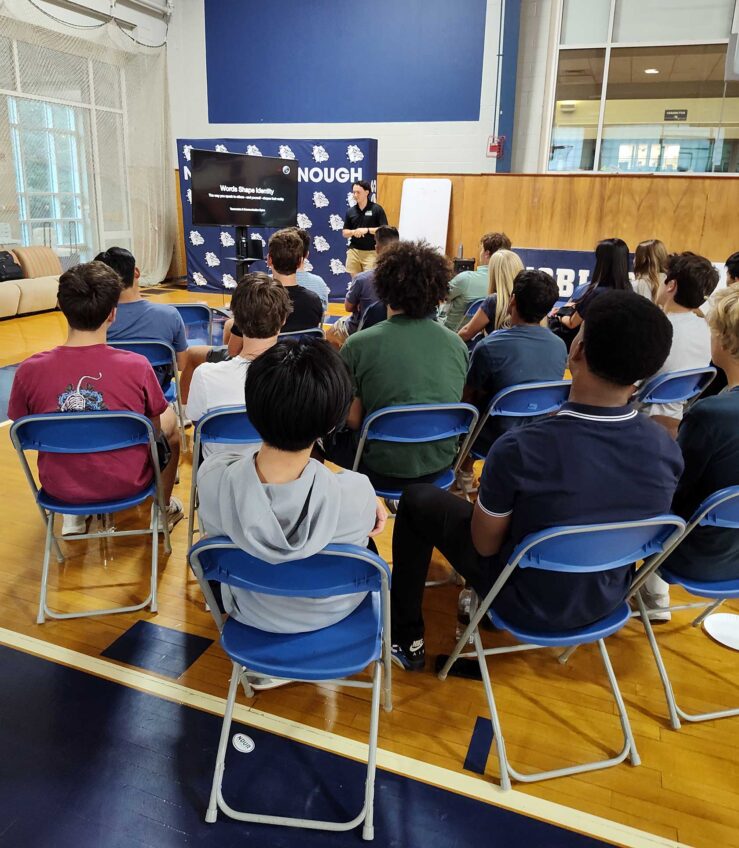
Banner Sports Sponsored by the Patriots Foundation
As of this writing, Michael Anthony Rubin, former headmaster and basketball coach of East Boston High School, is fighting medical issues that threaten his life. We are celebrating him while he is still amongst the living. Looking back at the remarkable journey that is his life, one realizes that someone in Hollywood should be drafting a script for a movie that would inspire future generations.
Born and raised in Tennessee, Rubin suffered the loss of both his mother at age nine and father at age 11 before being adopted and raised by his aunt, Idella Rubin-Reddick, and her husband, Paul.
“It wasn’t until I was in college that I found out that my mother had died from alcoholism. It had been a family secret that they kept from me for years,” Rubin shared. “When my father died of lung cancer just two years after my mom, I felt lost in the world. The death of one parent, especially your mother, is devastating — the death of both parents by the age of 11 is catastrophic. Thank God for my aunt, uncle and other special people who would guide me through those years,” he said.
Mentors’ impact
Yvonne Green, a school counselor, and Lavaughn Bridges, a basketball coach, were two mentors who played impactful roles in his young life. Rubin shared his thoughts about his mentors.
“Yvonne Green believed in me. She always told me that I was smart and that I should use my intelligence to make a difference in this life,” Rubin said. “Mr. Bridges taught me the fundamentals of basketball and the disciplines of both the game and life disciplines that I adopted as a coach and educator. His rules were simple and direct. ‘Be on time. Play the game with discipline and passion. Never cheat in the game of life or basketball’ — in that order. I patterned my life on those principles,” he added.
Rubin received a blessing when he entered the A Better Chance program, which took him from Orange Mound, Tennessee, to the prestigious Taft Prep School in Watertown, Connecticut.
“It was a cultural shock to my system [to go] from . . . Orange Mound, Tennessee, a place of abject poverty — we were so poor we didn’t know we were — to the wealth and influence of Taft. There were only ten Black students, all from the ABC program, out of 500 in the school. And the white students were from some of the wealthiest families in this country. My challenge was to prove that I was as smart as any of my wealthy classmates. I worked my ass off to keep up in the classroom,” Rubin remembered.
There were significant challenges on the basketball court as well. After being cut from the junior varsity team in his freshman year, Rubin boldly told the junior varsity coach and anybody who would listen, “I will never play on the junior varsity — I’ll make the varsity.” True to his word and following many hours of lonely practices, he would make the varsity team and start in his last two years at Taft. Following his graduation from Taft, Rubin chose to attend Tufts University over Johns Hopkins, Trinity and Wesleyan.
“I made one visit to Tufts and fell in love with the place. The affirmative action movement was in one of its strongest periods, with the Black students at Tufts playing major active roles. I knew Tufts was the place for me,” he said.
Rubin entered the Tufts basketball program during a rebuilding period.
“I missed playing with Reggie Graham and the powerhouse teams of Tom Penders’ era. But he and other former Tufts players would return to practice with my team, helping us rebuild the program. He would become one of my lifelong friends as we played and coached together throughout our adult years,” he said.
After a successful college career with over 30 wins during his junior and senior seasons to get the Tufts basketball team back on the winning track, Rubin would make one of the most important decisions of his life.
“I said I would take a year off and teach school before going to law school,” Rubin said. “I taught special education at Barnes Middle School while coaching JV basketball at East Boston High. I passed on law school because I realized that I was meant to be a teacher,” he said.
Coaching East Boston
At 24, Rubin became the head basketball coach at East Boston, taking over a program that was coming off a two-win,16-loss campaign and had not had a winning season since 1949. His first team went 8-10, his only losing season, and he missed making the state playoffs. “I was able to establish a culture of winning by sticking to the same principles taught to me by Coach Lavaughn Bridges,” said Rubin.
Coach Rubin’s basketball teams won 12 Boston City North Championships, 10 Boston City Championships, and four Massachusetts Division Two state basketball titles — 300 plus total victories during his 24-year tenure. However, his most important work came as the assistant headmaster (1990-2003) and headmaster of East Boston High School (2003-2013).
“When you become the headmaster of a high school you face daily challenges that are presented by thousands of students. There is a tremendous sense of pride and satisfaction in knowing that you are helping to guide these young people on their life’s journey. I never lost sight of that,” Rubin said, adding, “It was also very important that I lived in the communities Dorchester and Mattapan where I could see my students, and they could see me every day. I cherish the many successes of so many of my students while agonizing over every failure. Some who have failed have rallied to become successful people, but like any parent, you feel great pain over the young people you lost.”
One of the significant losses of Coach Rubin’s life was that of basketball prodigy Tim Bond, who was killed in a drug-related incident.
“Tim left Eastie, fell in with the wrong crowd and was murdered, a tragic loss of a gifted ballplayer,” Rubin said. “But for every loss, there are great success stories like Jeichael Henderson. He played for me at Eastie and would go on to become a principal in the Boston Public School System. So, from Mr. Brooks to me and to Jeichael Henderson, a torch was passed. Being a husband to wife Danette, father of five grown children — Teko, Taff, Shondra, Mikhail and Mikey — and given the blessing of being a positive Black male role model to thousands of young people placed in my care, I thank my God every day for my life.”
Of all the awards and testimonials bestowed on Rubin, he still insists that he likes to remain under the radar of public attention, but hiding a light under a lamp that burns so brightly is very hard. He is currently assistant director of the Massachusetts Interscholastic Athletic Association and assistant director of the Massachusetts School Administrators. When asked what he would like his epitaph to read, he humbly replied, “That I cared about all my students. I was firm and direct, with the emphasis on ‘tough love.’”
Well-spoken words from a man raised from an orphan to being the shepherd to thousands placed in his care. God bless you, Mike Rubin, and the many lives you have touched.






